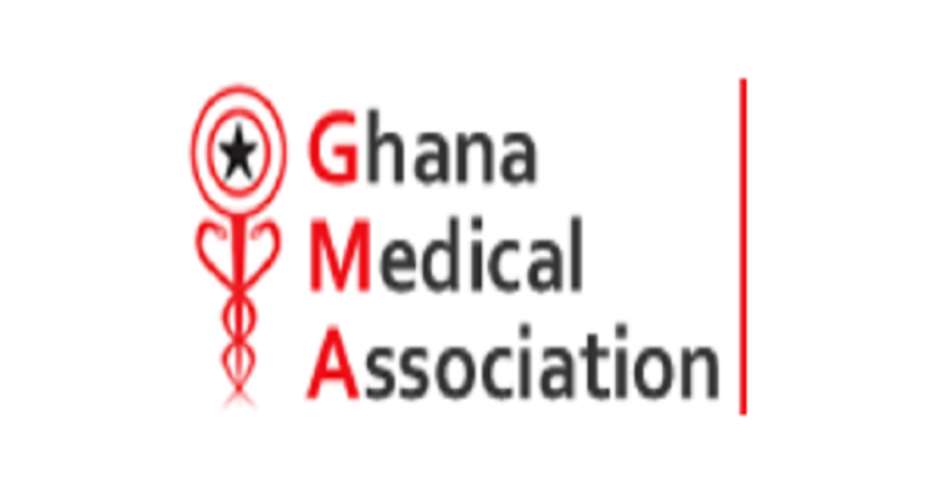The Ghana Medical Association (GMA) has raised serioius concerns over government’s failure to promptly pay National Health Insurance claims to health facilities across the country.
GMA says the issue of delayed payment of claims needs to be addressed with immediate effect to avert the possibility of reverting to the ‘cash and carry’ system.
Last week, the Health Insurance Service Providers Association of Ghana (HISPAG) threatened to withdraw some of its services from March 2020 if arrears owed its members by the government through the National Health Insurance Scheme are not paid.
According to HISPAG, no payment has been made for NHIS claims for up to fourteen months – a situation that has made it difficult for them to run their facilities, pay employees and settle statutory commitments.
In a statement signed by the President of GMA, Dr. Frank Ankobea, the Association appealed to government and the National Health Insurance Authority (NHIA) to urgently look into the matter by making funds available to the health facilities to sustain them and improve the general well-being and health care seeking behaviour of Ghanaians.
“The Ghana Medical Association has noted with great concern the failure of the NHIA to pay health facilities (Public and Private Hospitals) for services rendered from or about March 2019 to date, resulting in some providers threatening to withdraw services to national health insurance cardholders.”
“GMA calls on government and the NHIA to as matter of urgency pay all monies owed these facilities with immediate effect to ensure that they are not forced to initiate cash and carry as a mode of payment in their quest to ensure continuous service delivery as well as forestall their collapse and also for health insurance policyholders get all the health services and benefits of the policy,” the statement added.

In the past, HISPAG had threatened to return to the cash and carry system if arrears owed its members by the NHIA are not paid immediately because their operations were being adversely affected.
The Association, therefore, called on the government to take action to have the situation fixed as soon as possible, to prevent any future inconveniences. Pharmaceutical companies cut supplies to hospitals over delayed NHIS payments
The Chamber of Pharmacy, Ghana (CoPG) had earlier served notice that its members will no longer provide medicines to hospitals that have delayed in paying for drugs offered, for more than three months.
This, it said, was to forestall any potential repercussions on the companies under the Chamber, from the delayed reimbursement by the National Health Insurance Scheme (NHIS) through the Health Service Providers.
The Chamber added that it will request payment guarantees before supplying any more medicines to hospitals that require their services.
“Chamber Members shall henceforth request the hospitals to provide payment guarantee before medicines could be supplied to them. This is the only way to sustain our individual companies. Health facilities owing more than three months shall no more enjoy any credit facilities from our members”, it said in a statement.
Debts killing us
The Chamber has however blamed the high cost of medication in the country on the inability of the NHIA to pay them on time.
Chief Executive Officer of the Chamber, Anthony Ameka said that, due to the increasing rates of the Dollar against the Ghana cedi, the Chamber has to increase the prices of medication to make up for the cost of drugs.
He indicated that only the early payment of the drugs will tackle the challenges with the cost of medicine and the associated implications on health care delivery.
“For instance, anytime I have my goods arrived in the country, I have 45 days to pay and it takes two to three years for the hospitals to pay. To avoid my company being blacklisted, I go to the bank for a loan and the interest rate is added to the amount. Secondly, assuming as of the time I am importing, the interest rate goes up, who pays for the exchange rate loss if the hospitals take more than a year to pay. If the NHIA is able to pay all these monies quickly, these costs can be avoided and that can also bring the cost of medicine down.'
---citinewsroom





 Election 2024: NPP done so much and deserves victory — Akufo-Addo
Election 2024: NPP done so much and deserves victory — Akufo-Addo
 AG has 'killed' Cecilia Dapaah matter; 'abrupt end' fits clearing-agent pattern—...
AG has 'killed' Cecilia Dapaah matter; 'abrupt end' fits clearing-agent pattern—...
 Former Weija-Gbawe MCE Patrick Kumor dies
Former Weija-Gbawe MCE Patrick Kumor dies
 Ghanaian Musician Itztiffany’s sister jailed in US
Ghanaian Musician Itztiffany’s sister jailed in US
 Cecilia Dapaah scandal: Withdraw letter to EOCO – Martin Kpebu to AG
Cecilia Dapaah scandal: Withdraw letter to EOCO – Martin Kpebu to AG
 IMF calls for tariff adjustment to enhance Ghana's energy sector cost recovery
IMF calls for tariff adjustment to enhance Ghana's energy sector cost recovery
 SML-GRA Contract: Insufficient evidence to prosecute government officials — Afen...
SML-GRA Contract: Insufficient evidence to prosecute government officials — Afen...
 Ketu North: NDC holds ‘Victory Health Walk’ ahead of election 2024
Ketu North: NDC holds ‘Victory Health Walk’ ahead of election 2024
 Tema Port truck drivers to embark on sit-down strike on May 6
Tema Port truck drivers to embark on sit-down strike on May 6
 Walewale NPP: Constituency Chairman endorsement of Tiah Mahama as PC prejudicial...
Walewale NPP: Constituency Chairman endorsement of Tiah Mahama as PC prejudicial...
